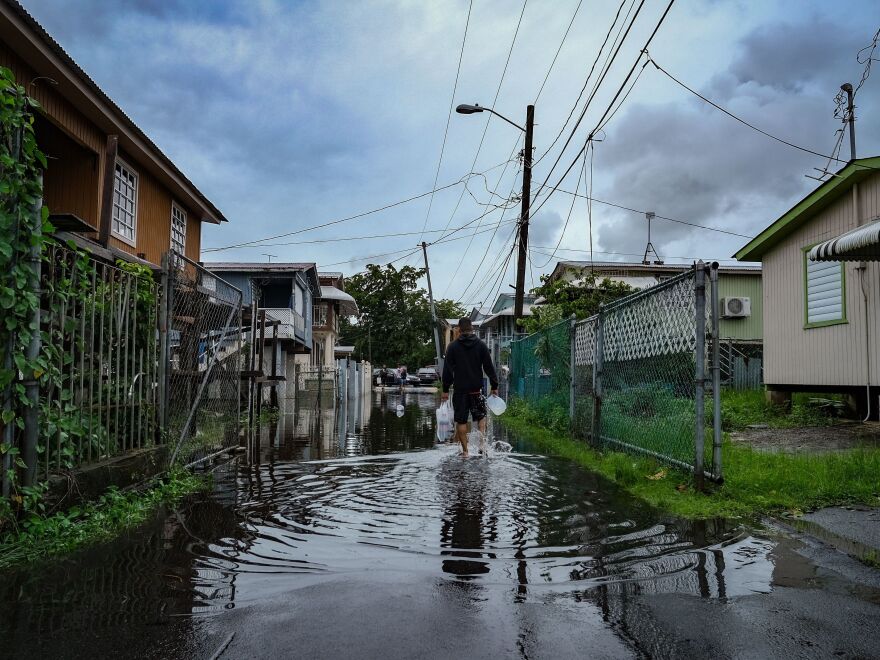Truth matters. Community matters. Your support makes both possible. LAist is one of the few places where news remains independent and free from political and corporate influence. Stand up for truth and for LAist. Make your year-end tax-deductible gift now.
Why Latino People Are On The Front Lines Of Climate Change

Most residents of Puerto Rico still don't have electricity or water days after Hurricane Fiona caused floods and landslides. The widespread damage, just five years after Hurricane Maria destroyed much of the territory's infrastructure, revealed how unprotected the island's 3.2 million residents are as climate change makes hurricanes more powerful and rainy.
Puerto Rico's vulnerability to storms is the latest example of how Latino people in the United States often live on the front lines of global warming. Latinos are disproportionately affected by climate-driven extreme weather, and are generally more concerned about climate change than non-Hispanic Whites, according to multiple national polls.
"Latino communities from Texas to California to Puerto Rico are the hardest hit when these climate-induced disasters occur," says Michael Méndez, who studies climate policy and environmental justice at the University of California Irvine. "They absolutely have a real world connection to our changing climate."
Latino communities are more likely to face climate-driven extreme weather
Latinos in the U.S. are more likely than non-Hispanic Whites to experience heat waves, powerful hurricanes, sea level rise and floods, according to the Environmental Protection Agency.
And that risk will only grow as the Earth heats up. For example, the EPA estimates that Hispanic and Latino people are more than 40% more likely to live in places where it will frequently be too hot to work a full day outside.
More severe heat waves are a major problem, because millions of Latinos have jobs that require them to be outside.
"For example, agricultural workers, first responders, construction workers, landscape workers," explains Juan Declet-Barreto, who studies the unequal impacts of climate change at the Union of Concerned Scientists. "The changing climate is exposing those workers to longer hours with dangerous heat levels."
And, as the news from Puerto Rico makes clear, Latinos often live in the path of hurricanes, from Texas to the East Coast. And storms are getting more damaging as the Earth gets hotter.

Latinos help lead efforts to tackle climate change
Latinos have a long history of climate and environmental activism against pollution and climate change. That includes pushing for fair emissions reduction policies in California and equitable hurricane assistance in Texas. In Puerto Rico, many residents have spent the years since Hurricane Maria calling for a more reliable, renewable electrical grid.
A 2017 survey found that Latinos are more engaged with the topic of climate change, and more concerned about its effects, than other racial and ethnic groups in the U.S.
"Latinos recognize the reality of climate change, and recognize that it is a big problem," Declet-Barreto says. "Sometimes I think that there has been this perception that Latinos do not care about the environment because they're more concerned about the economy, jobs or immigration policies, for example. But that is really not true."
Copyright 2024 NPR. To see more, visit npr.org.







